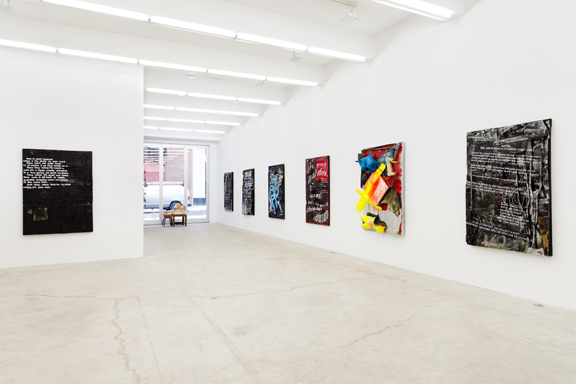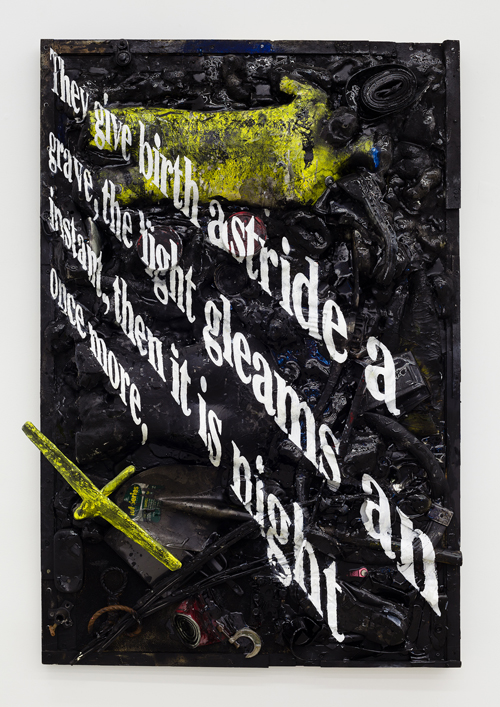Justin Lieberman
Sunday, 6 July 2014




Justin Lieberman
Work from “Squeezed Reliefs” at Martos Gallery, New York
“Here’s what the frenetic pace of a price-tagged art world has wrought: Justin Lieberman’s “Squeezed Reliefs” recycle unsold sculptures tacked onto canvases, topped off with paint that recounts the artist’s financial ruin. The artist makes clear in a statement that the black-and-white chicness of these eight works (all 2014) is meant to be a capitulation to what’s in style. One wonders if to enjoy these paintings is to also take part in the unforgiving cycles that led the artist here.
Pieces of sculptures drown under the paint, their original meaning has been co-opted by their worthlessness—at least by market standards. A stray wire hanger, a mannequin, bowls, and handicap signs all stick out desperately from the canvas’ surface. Most of the works’ titles come from archaic torture devices—Brazen Bull (an ancient Greek roasting), Leng tch’e (Chinese slow slicing), Peine forte et dure (stones placed on the chest until confession or death). Warped, white painted text, however, communicates past-due bills, an eviction notice, termination of service, and bad poetry (is there a difference?). In The Judas Cradle a slanted text begins, “You are in danger of losing your home,” its stylish skewedness somehow making the message less grave. Similar admonitions of “You must respond . . .” or “You are in violation . . .” mask the dregs of older works in the crowded frame. These newer, more aggressive amalgams compete for dominance with the ghosts of underlying narratives.
Two sculptures accompany the hanging works, including Arbeitsbeschaffungsmaßnahme (job-creating measure), a glass vitrine packed with art of friends, letters to collectors, fliers, exhibition cards, and some of the artist’s own work. The tight and anxious display mocks the frenzy of creating and supporting, and, in doing so, makes another work. Everything eventually becomes a part of another paycheck, as collected art-world ephemera become works, and old works get compressed into the new. In all these pieces, art has been reduced and reduced again until it’s something opposite: It’s a bill.” – Ali Pechman, Artforum